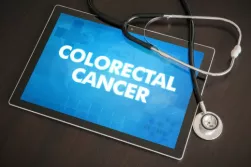PRINCETON, N.J. - Bristol Myers Squibb today announced that the U.S. Food and Drug Administration (FDA) has accepted the supplemental Biologics License Application (sBLA) for Opdivo ® (nivolumab) plus Yervoy ® (ipilimumab) as potential first-line treatment for adult patients with unresectable hepatocellular carcinoma (HCC), based on results from the Phase 3 CheckMate -9DW trial. The FDA assigned a Prescription Drug User Fee Act (PDUFA) goal date of April 21, 2025.
“HCC is the most common form of liver cancer and is often diagnosed when surgery is no longer an option. With the number of individuals diagnosed with HCC in the United States increasing over the last decade, new treatment options are urgently needed,” said Dana Walker, M.D., M.S.C.E., vice president, global program lead, gastrointestinal and genitourinary cancers, Bristol Myers Squibb. “ Opdivo plus Yervoy showed superior survival benefit compared to other available treatment options, and we look forward to working with the FDA to advance our application to potentially bring a new first-line treatment option to patients.”
The filing was based on the results from the Phase 3 CheckMate -9DW study in which the combination demonstrated a statistically significant and clinically meaningful improvement in overall survival (OS) compared to investigator’s choice of lenvatinib or sorafenib. The combination of Opdivo plus Yervoy has been an established second-line treatment for patients with advanced HCC, and these results support the combination becoming a potential new treatment option in the first-line setting. The safety profile for the combination of Opdivo plus Yervoy remained consistent with previously reported data and was manageable with established protocols, with no new safety signals identified. Results were presented at the 2024 American Society of Oncology (ASCO ® ) Annual Meeting .



